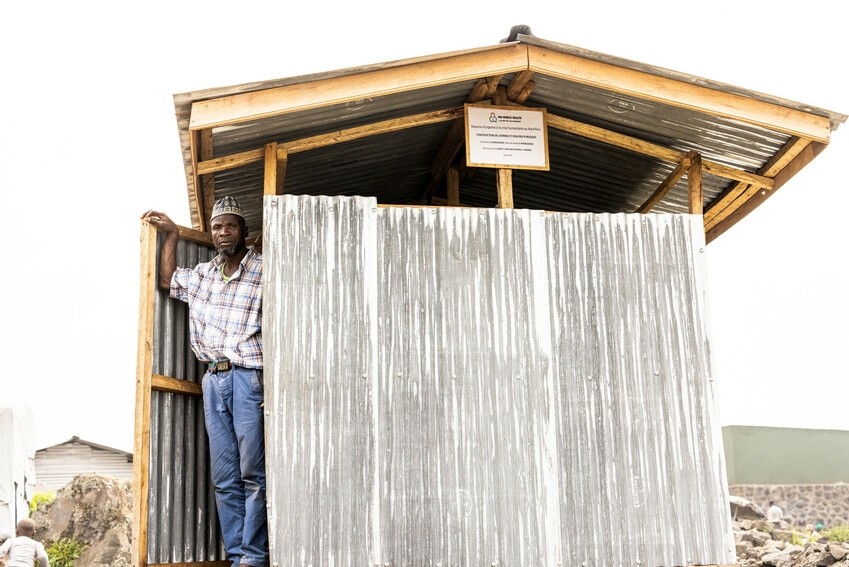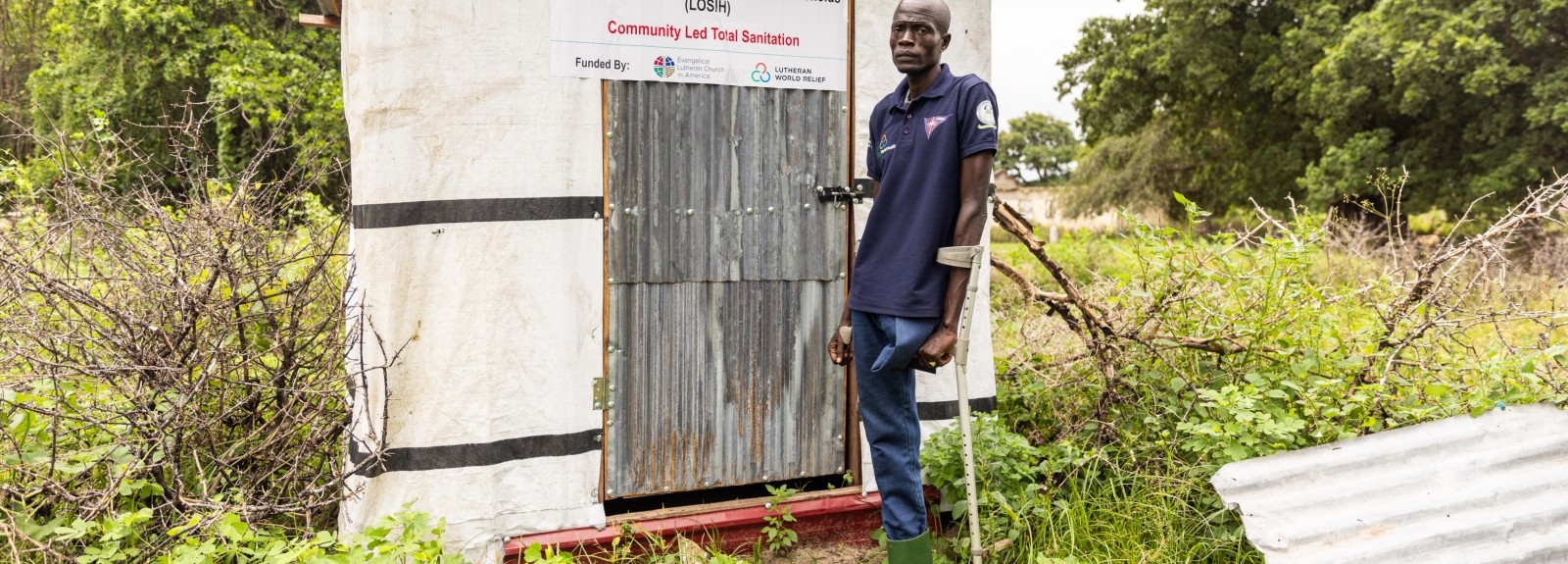Safe and sanitary toilets are not just facilities; they are essential places for peace. Shockingly, over 3.5 billion people worldwide still lack access to these vital resources. This dire situation is most acute among communities ravaged by conflict, climate change, natural disasters, and systemic neglect. The absence of proper sanitation facilities compromises health, safety, dignity and progress.
In line with UN-Water’s 2024 theme for World Toilet Day, Corus is highlighting three important ways toilets are places for peace for people throughout the world and the vital role they play in advancing global human development.
1. Toilets protect people
Proper sanitation not only improves health and hygiene but also ensures personal safety, especially in conflict settings where leaving the home or community by oneself can pose heightened danger. When women and girls do not have access to safe toilets, their risk of experiencing gender-based violence (GBV) can more than double in certain settings.

A toilet built for internally displaced persons (IDPs) living in a camp in North Kivu, DRC.
The humanitarian crisis in the Democratic Republic of the Congo’s (DRC) North Kivu province is dire with violence forcing hundreds of thousands of people out of their homes. WASH needs are urgent across internally displaced person (IDP) sites, where cholera outbreaks and GBV are a constant concern. In North Kivu IDP camps, IMA World Health has built latrines to support both the safety and health of IDPs. They are lockable, well-lit, located away from water and food sources and effectively isolate human waste.
2. Toilets protect health
Globally, diarrheal disease is the third leading cause of death and is a leading cause of malnutrition in children under five (WHO). It is preventable in most cases through safe drinking-water and sanitation and hygiene practices, like maintaining clean household and community toilets.

In Guatemala, community health promoters teach the importance of safe sanitation and hygiene practices.
In Guatemala, Corus organization Lutheran World Relief partnered with FundaSistemas to implement the Improving Health and Nutrition in Guatemala’s Western Highlands project. The project trained and empowered local health promoters, many of them women, to visit community members to evaluate health practices and teach hygienic bathroom habits to reduce rates of diarrheal disease and malnutrition. It’s having powerful results: 99% of households now employ proper toilet hygiene practices around human waste management, and women’s leadership is growing within the participating communities.
3. Toilets protect dignity
In the aftermath of a natural disaster, people are often compelled to reside in tents, relying on communal facilities that can be overcrowded, unsanitary, and potentially hazardous. During such turbulent times, the opportunity to experience a moment of privacy and maintain personal hygiene can restore a sense of normalcy and dignity. This is why, beyond ensuring safety and health, constructing private latrines with clean water access is crucial in addressing people’s immediate needs when responding to a crisis. By prioritizing these essential services, fundamental human needs are met, and individuals are empowered to regain control amidst chaos, fostering resilience and hope in their recovery journey.

Communal latrines built to provide extra privacy and comfort in a tent camp for those displaced by the 2023 Türkiye earthquakes.
Corus partnered with Young Life Foundation (Genç Hayat Vakfı) in Türkiye following the February 2023 earthquakes to provide WASH and psychosocial support, child-safe spaces, educational programming, and women-safe spaces. The construction of these private latrines was an important part of these efforts to protect the dignity, safety and health of Türkiye’s earthquake survivors.
These are just three examples of how Corus organizations supply critical water, sanitation and hygiene (WASH) infrastructure, promote social and behavior change around hygiene practices, and provide safe water sources for communities across the globe. Visit the Corus Impact Map to learn more about our WASH work.

